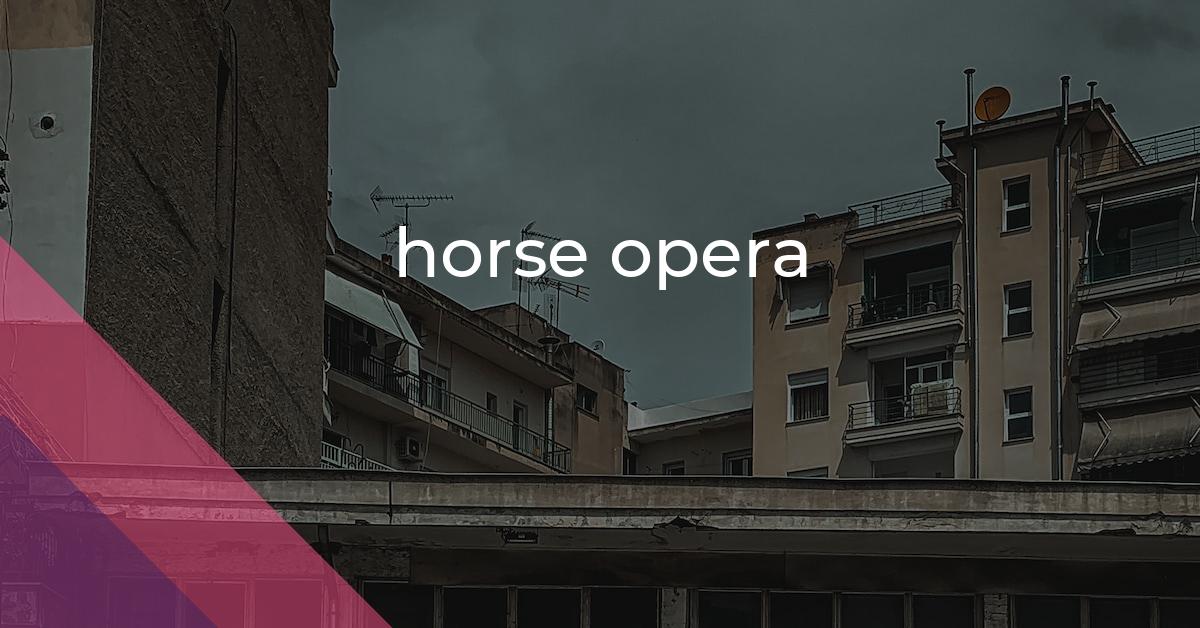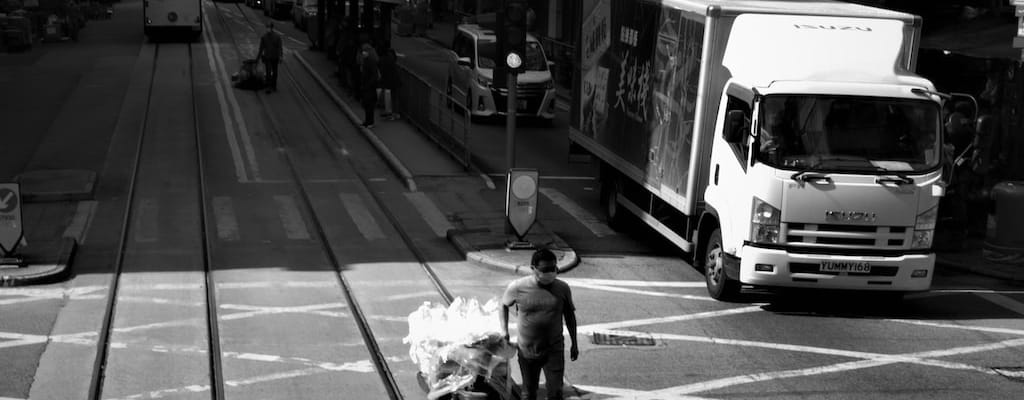horse opera: Idiom Meaning and Origin
What does ‘horse opera’ mean?
The idiom horse opera refers to a term used to describe Western movies or plays that depict dramatic events with horses. The term originated in the early 20th century and has since evolved to also signify something that is melodramatic or overly dramatic.

Idiom Explorer
The idiom "I could eat a horse" means to be extremely hungry, indicating that one's appetite is so intense that they could consume a large amount of food, even as much as an entire horse.
The idiom "horsetrading" refers to the practice of negotiating or bargaining in a shrewd or calculated manner, often involving give-and-take, compromise, and strategic maneuvering to achieve a desired outcome.
The idiom "horsetrade" means to bargain or negotiate, especially in a shrewd or calculating manner, in order to achieve a desired outcome. It is often used in the context of making deals or compromises, where both parties seek to gain an advantage.
The idiom "horse's mouth" means getting information directly from the source or from someone who has firsthand knowledge or experience about a particular topic.
The idiom "horses for courses" means that different people or things are suited to different tasks or situations.
The idiom "horse's ass" refers to someone who is foolish, incompetent, or makes a fool of themselves. It is often used to criticize someone's behavior or actions, implying that they are behaving stupidly or in a ridiculous manner.
The idiom "horse of a different color" refers to a situation or topic that is completely distinct or unrelated from the one previously mentioned or discussed. It implies a significant change or shift in focus, often catching people by surprise.
The idiom "horse around" means to engage in playful, often rowdy or foolish behavior. It is used to describe someone who is not taking a situation seriously or wasting time by being silly or disruptive.
The idiom "horse and rabbit stew" is not a commonly known expression. It does not have a widely accepted meaning or usage. No reliable sources support its existence as an idiom.
Untangling Western Theatrics
The term "horse opera" is a colloquial term that refers to Western films or television shows. It originated in the early 20th century and became popular in the 1940s and 1950s. The term is primarily used in American English.
One interesting aspect of "horse opera" is its connection to Western-themed stage shows of the late 19th and early 20th centuries. These stage shows often had melodramatic and exaggerated storylines, which eventually led to the term being used to describe Western films and later television shows that shared these characteristics.
So, what's the origin of the term "horse opera"? Well, it's a blend of two words: "horse" and "opera". The word "horse" refers to the animal commonly associated with the Western genre, as horses played a central role in these stories. The word "opera" is used metaphorically here, describing the exaggerated and dramatic nature of these films and shows.
Now, it's important to note that "horse opera" is a somewhat informal and casual term. It's primarily used by enthusiasts or fans of the Western genre. While it may have originated as a derogatory term, it has since become more acceptable and is often used in a nostalgic or affectionate manner.
Speaking of related idioms, let's explore one: "horse of a different color". This idiom is often used to describe something that is completely different from what was previously mentioned or expected. It originates from the Wizard of Oz, when Dorothy's dog, Toto, reveals that the horse of a different color in the Emerald City is not just a regular horse.
Now, how does "horse of a different color" relate to the term "horse opera"? Well, in the context of Western films or television shows, this idiom could be used to describe a unique or unexpected twist in the plot. Just when you think you have the story figured out, something unexpected happens, and it's like a "horse of a different color".
Let's move on to another related idiom: "horse around". This idiom is often used to mean "to play or fool around in a carefree or silly manner". It can refer to physical playfulness or lighthearted mischief. People may "horse around" to relieve stress or simply have some fun.
So, how does "horse around" relate to "horse opera"? Well, in the context of Western films or television shows, this idiom could be used to describe moments of lightheartedness or comic relief in an otherwise serious or dramatic story. Characters may "horse around" to lighten the mood and provide some entertainment amidst all the intense action and plot twists.
As you can see, the term "horse opera" is not only a colloquial term for Western films or television shows, but it also has connections to other idioms like "horse of a different color" and "horse around". These idioms add depth and nuance to our understanding of the Western genre and how it is portrayed in popular culture.
To summarize, "horse opera" is a term used to describe Western films or television shows. Its origins can be traced back to the popularity of Western-themed stage shows in the late 19th and early 20th centuries. The term blends the words "horse" and "opera" to capture the prominent role of horses and the exaggerated nature of these stories. While informal, the term has gained acceptance and is often used with nostalgia and affection. Additionally, related idioms like "horse of a different color" and "horse around" further enhance our understanding of the Western genre and its various nuances.
Example usage
Examples of how the idiom horse opera can be used in a sentence:
- He grew up watching classic horse operas on the television.
- The old western film they watched last night was a typical horse opera.
- She loves reading horse operas and enjoys the exciting plotlines.
The idiom horse opera is typically used to refer to a western film or television show, particularly those with a focus on cowboys, horses, and action-packed storylines. It is often used in a nostalgic or affectionate way to describe these dramatic and thrilling productions.
More "Westerns" idioms
We missed the mark - nothing found.



